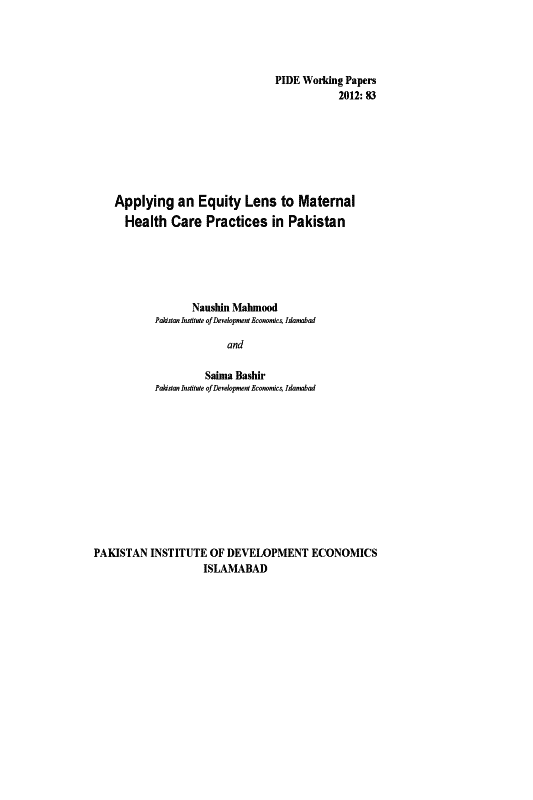Applying an Equity Lens to Maternal Health Care Practices in Pakistan
The focus of this study is to see how equitable the access and utilisation of health services are among married women in Pakistan. It examines the changes in the pattern of maternal health care practices and the extent to which inequities in access to those services have changed over the past two decades. Using two datasets—the Pakistan Demographic and Health Surveys (PDHS) of 1990-91 and 2006-07, the overall findings indicate that there is an improvement in inequity patterns of health care among married women beginning in the urban areas and more recently spreading to rural areas. Among the factors explaining the health care differentials, the effect of wealth and socio-economic status are significant, especially when examined for use of private and public health facilities. It is further noted that increased educational attainment level of women improves utilisation of maternal health care services. The inequity pattern disfavouring the poor and the large majority of uneducated women is likely to jeopardise achievement of goals 4 and 5 of the Millennium Development Goals and other national and regional targets of maternal and child health care programmes.




